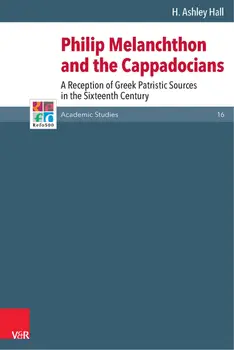This work offers a comprehensive examination of how Philip Melanchthon (1497-1560) -- a great philologist, pedagogue, and theologian of the Reformation -- used Greek patristic sources throughout his extensive career. The Cappadocian Fathers (here identified as Gregory Thaumaturgus, Basil of Caesarea, Gregory Nazianzen, and Gregory of Nyssa) were received through the medieval period to be exemplary theologians. In the hands of Melanchthon, they become tools to articulate the Evangelical-Lutheran theological position on justification by grace through faith alone, the necessity of formal education for theologians in literature and the natural sciences, the freedom of the will under divine grace, exemplars for bishops and even princes, and (not least) as models of Attic Greek grammar and biblical exegesis for university students. The book is organized around Melanchthon's use of Cappadocian works against his opponents: Roman Catholic, the Radical Reformers, the Reformed, and in Intra-Lutheran controversies. The author places Melanchthon within the context of the patristic reception of his time. Moreover, an appendix offers a sketch of the "Cappadocian canon" of the sixteenth century, with notation of the particular sources for Melanchthon's knowledge and the references to these works in modern scholarly sources. While often accused by his critics (past and present) of being arbitrary in his selection of patristic authorities, too free with his quotations, and too anxious for theological harmony, this work shows Melanchthon "at work" to reveal the consistent manner and Evangelical-Lutheran method by which he used patristic material to proclaim "Christ and his benefits" throughout his multifaceted career.
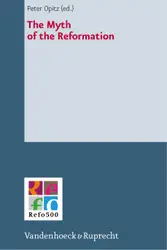
The Myth of the Reformation
book
Calvin and Luther: The Continuing Relationship
book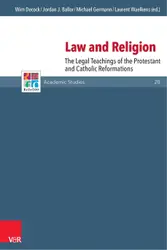
Law and Religion : The Legal Teachings of the Protestant and Catholic Reformations
book
Preparing for Death, Remembering the Dead
book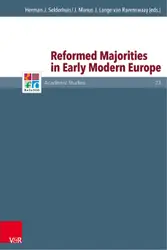
Reformed Majorities in Early Modern Europe
book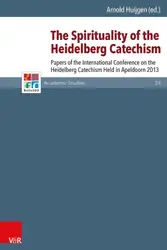
The Spirituality of the Heidelberg Catechism : Papers of the International Conference on the Heidelberg Catechism Held in Apeldoorn 2013
book
Latomus and Luther : The Debate: Is every Good Deed a Sin?
Anna Vind
book
Underground Protestantism in Sixteenth Century Spain : A Much Ignored Side of Spanish History
Frances Luttikhuizen
book
Lutheran Theology and the shaping of society: The Danish Monarchy as Example : The Danish Monarchy as Example
book
After Merit : John Calvin's Theology of Works and Rewards
Charles Raith
book
Arts, Portraits and Representation in the Reformation Era : Proceedings of the Fourth Reformation Research Consortium Conference
book
The Controversy over the Lord's Supper in Danzig 1561–1567 : Presence and Practice – Theology and Confessional Policy
Bjørn Ole Hovda
book
